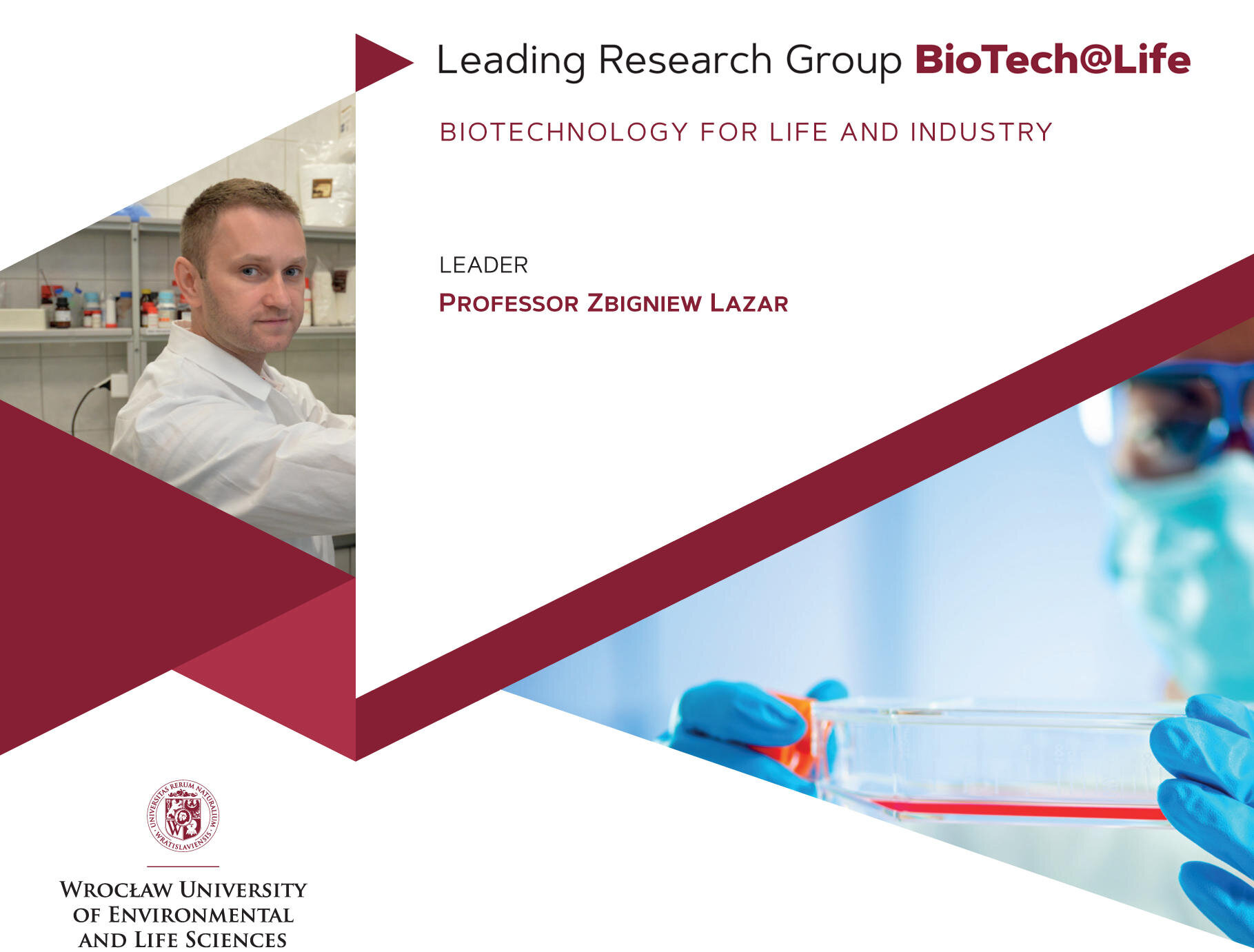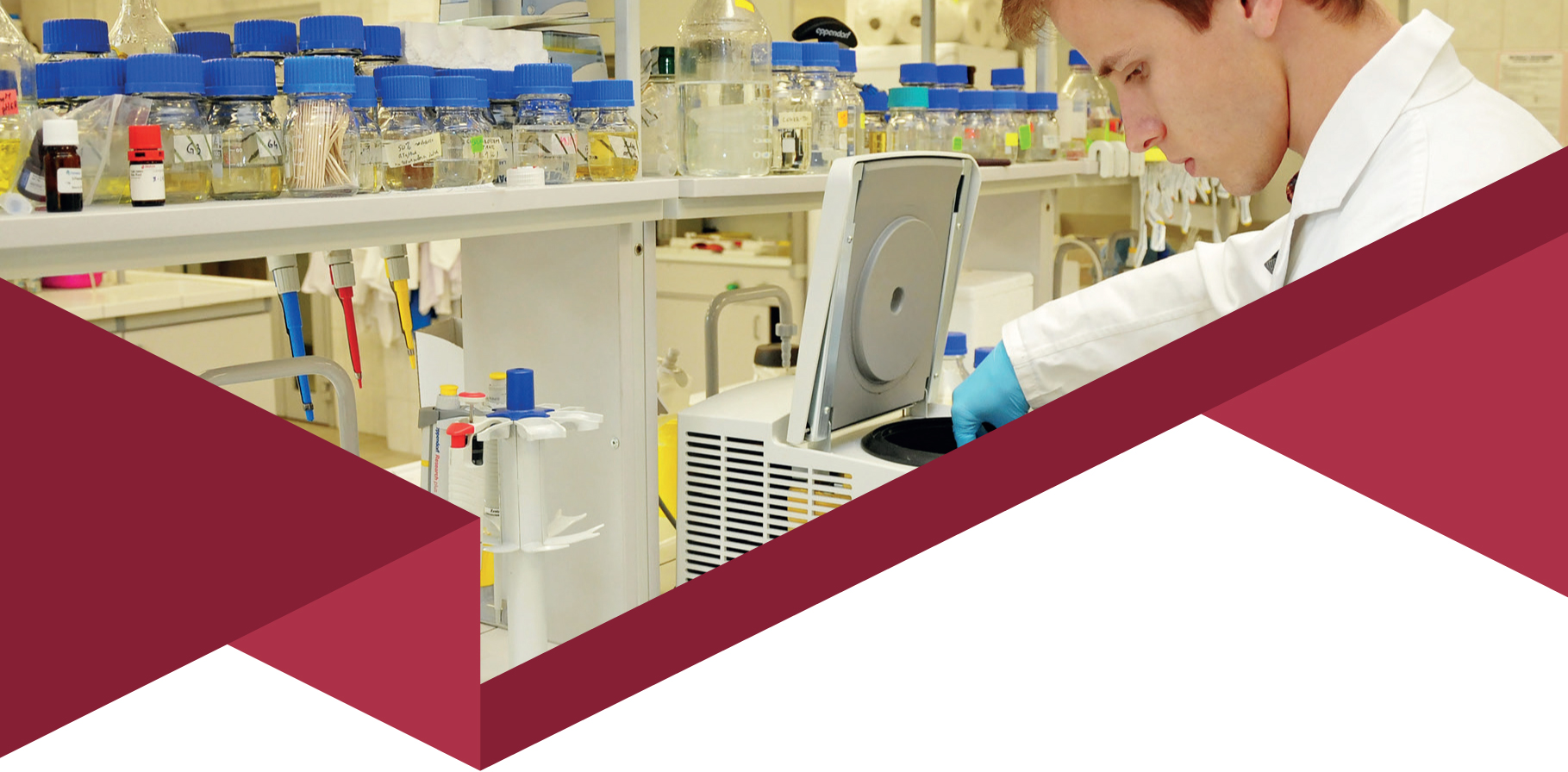
Wrocław University of Environmental and Life Sciences
Department of Biotechnology and Food Microbiology
Chełmońskiego St. 37/41, 51-630 Wrocław
Professor Zbigniew Lazar, ScD
tel. +48 71 320 7793
e-mail: zbigniew.lazar@upwr.edu.pl
Areas of interest
- Biotechnological application of yeast, especially the Yarrowia lipolytica species (biosynthesis of: organic acids (citric, isocitric, succinic, α-ketoglutaric, pyruvic, kynurenic), polyols (mannitol, erythritol), lipid and lipid derivatives; production of biosurfactants; bioremediation of soil contaminated with petroleum compounds; characterization of: the erythritol biosynthesis pathway, glycerol and sugar metabolism regulation, cell wall biosynthesis;
- Biotechnological utilization of filamentous fungi, especially the Trichoderma genus (production of lytic enzymes (cellulases, xylanases, glucanases, chitinases); degradation of lignocellulosic waste; utilization of fungal preparations in biocontrol);
- Studying the biology of bacteriophages and their potential use in preventing and controlling bacterial infections in humans and animals;
- Biotechnological utilization of plants; genetic engineering of flax to improve its functional properties;
- Metabolic engineering of microorganisms, especially yeasts and filamentous fungi (improvement of the native metabolic pathways (erythritol biosynthesis, lipid biosynthesis); increasing the range of available substrates for biotechnological processes; introducing heterologous biosynthetic pathways for lipids and their derivatives, as well as biosynthetic pathways for colour compounds into the yeast genome; improvement of cellulolytic properties of filamentous fungi);
- Waste management of the agro-food industry and its application as substrates in biotechnological processes;
- Chemical and enzymatic modifications of the structure of natural phospholipids, lipophilization of biologically active compounds in terms of increasing their bioavailability in biological systems, development of nanostructured lipid carriers effective in the delivery systems of substances with confirmed therapeutic activity, development of effecient formulations in the treatment and prevention of cancer, neurodegenerative and metabolic diseases;
- Biotechnological methods of obtaining dietary supplements.
Key words: Yarrowia lipolytica, Trichoderma, bacteriophages, lipids, erythritol, mannitol, citric acid, α-ketoglutaric acid, kynurenic acid, flax, surfactants, metabolic engineering, agro-food waste, bioremediation, phospholipids, nanostructured lipid carriers, biologically active compounds, dietary supplements, prevention of cancer, neurodegenerative and metabolic diseases










